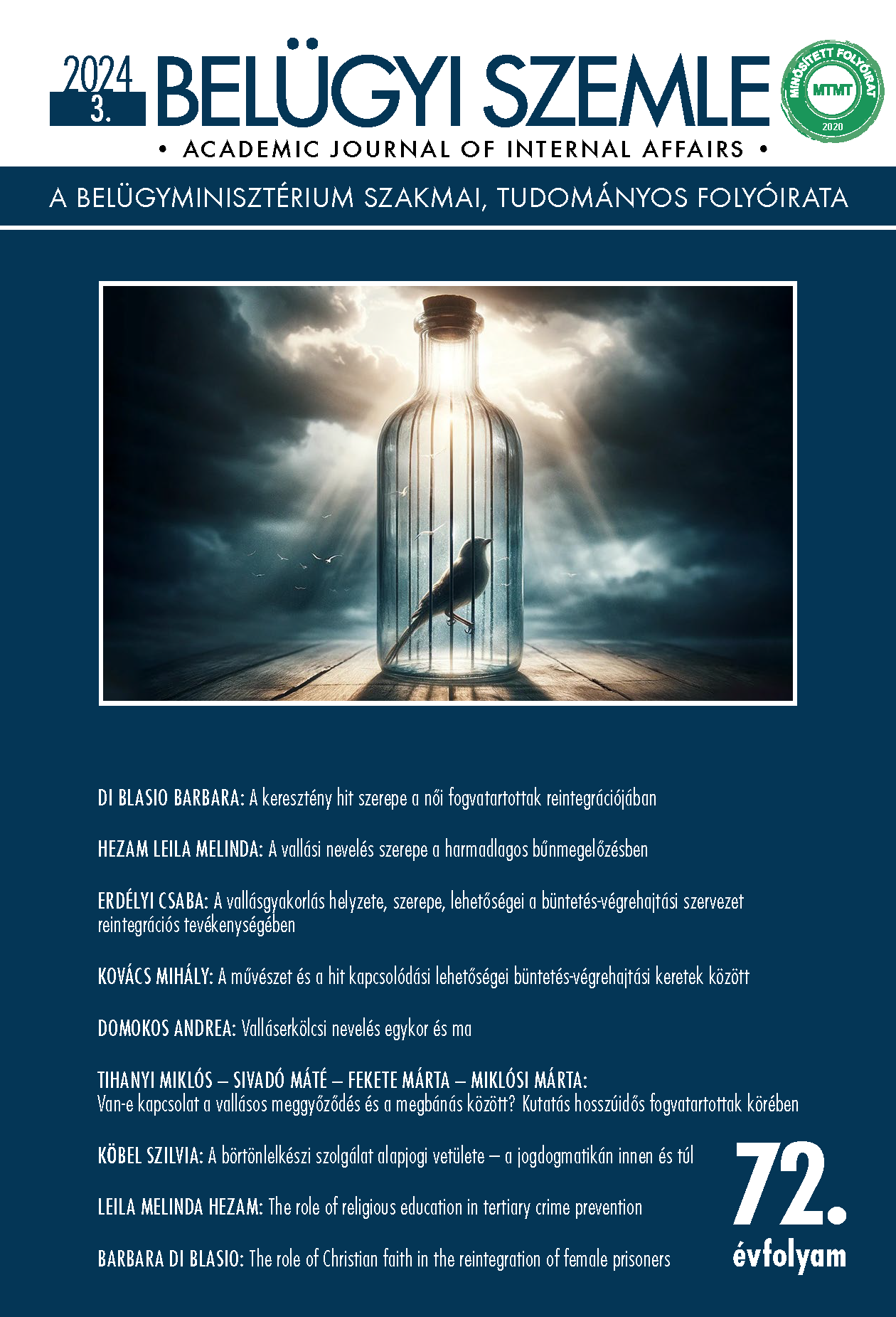Absztrakt
Cél: Annak vizsgálata, hogy azoknak a hosszú börtönbüntetésre ítélt elkövetőknek, akik a börtönben aktív módon vesznek részt vallási gyakorlatban, mi jellemzi a vallásosságukat, és ezek a jellemzők milyen módon hatnak az elkövetett bűncselekmény és az ezért kiszabott büntetés megítélésére.
Módszertan: A szerzők a Büntetés-végrehajtás Országos Parancsnokságának engedélyével három büntetés-végrehajtási intézetben, összesen 16 fogvatartottal vettek fel interjút. Valamennyien több mint 15 éves börtönbüntetést töltöttek, és a börtönlelkészek megítélése szerint aktívan vesznek részt vallási gyakorlatokon. Az interjúkérdéseket előzetesen elgondolt narratívák alapján alakították ki, majd ezeket a narratívákat elemezték. Az elemzések alapján megállapították, hogy mi jellemzi az interjúalanyok vallásosságát, és az általuk elkövetett cselekményről, valamint büntetésükről alkotott felfogásukat. Végül pedig összevetették, hogy a vallásosság különböző jellemzői milyen összefüggéseket mutatnak a cselekményről és az ítéletről alkotott felfogásokkal.
Megállapítások: A hitüket mélyebben megélők jellemző módon vállalják a felelősséget, többségük még a büntetés mértékét sem vitatja. A felelősségüket elismerők esetében megjelenik a megbánás motívuma is, amely erősen vallási töltetű. Erre utal, hogy mindazoknál, akik elismerik a cselekményüket és megbánást tanúsítanak, határozottan megjelenik a megbocsátás iránti vágy motívuma. A vallásos hit minősége és a felelősségvállalás közötti pozitív és szorosabb összefüggésre utal, hogy azok a fogvatartottak, akikre a vallásossággal szembeni szkepticizmus jellemző, ők elismerik a cselekmény elkövetését, de semmilyen megbánást nem tanúsítanak. Ugyancsak erre a kapcsolatra enged következtetni, hogy akiket inkább a formális hit jellemez, azok vagy tagadták cselekményüket, vagy nem szóltak róla.
Érték: A megbocsátásban megjelenő engesztelődés pozitívan képes befolyásolni a büntetési célok elérését. Szakirodalmi adatok szerint ugyanis a megbocsátás és az engesztelődés jelentősen csökkenti a bűnismétlés valószínűségét. Ez a megbocsátás szinte minden irányára igaz. A sértett megbocsátására éppen úgy, mint az elkövető másokkal szembeni megbocsátására. Ezért feltételezhető, hogy a vallásosságban megjelenő megbánás és megbocsátás motívumok a visszaesővé válás ellen hatnak.

This work is licensed under a Creative Commons Attribution-NonCommercial-NoDerivatives 4.0 International License.
Copyright (c) 2024 Belügyi Szemle

